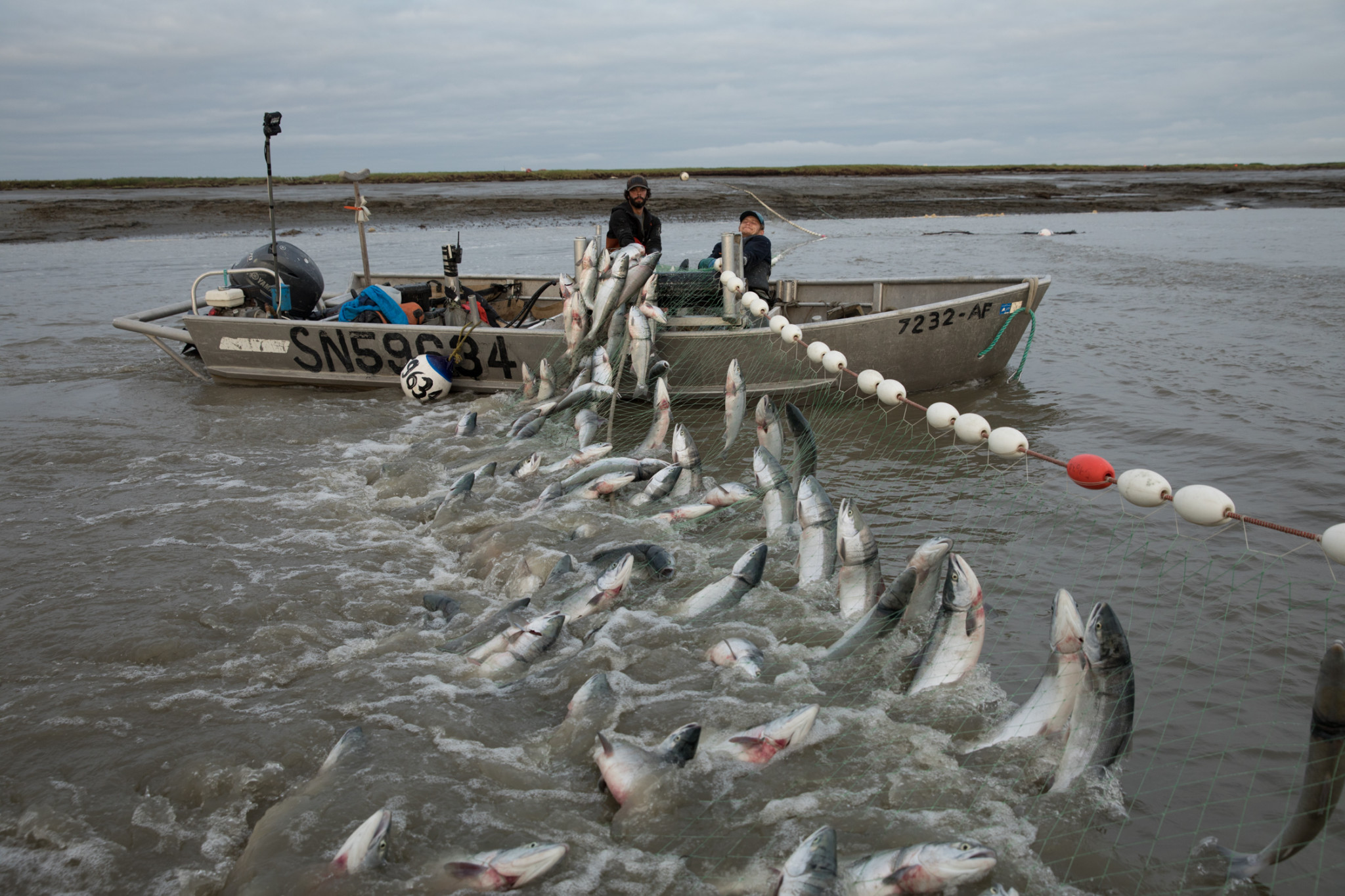Less than a month after Pebble Ltd. submitted its mining application for a heavy-metals pit mine at the headwaters of Alaska’s salmon-rich Bristol Bay, the Environmental Protection Agency has reinstated its concern that the project poses too a high risk to abundant natural resources in the region.
“The tens of millions of salmon that return to Bristol Bay each year fuel a $1.5 billion fishing economy, support 14,000 jobs, and dozens of businesses run by hard-working American families,” said Trout Unlimited in a statement.
In 2014, the Obama administration’s EPA used the Clean Water Act to restrict Pebble’s plans on the grounds of a contamination risk to the sustainable salmon fishery. Northern Dynasty Minerals, Pebble’s principal financial backer, sued the government for the right to file a permit — which it had failed to do in more than 10 years of beating the drum for its mine prior to the 2014 shutdown.
Trump-era EPA Administrator Scott Pruitt reopened the application process for Pebble Ltd. last summer after a brief meeting with representatives from the mining company. His decision gave the company three years to file its permit.
Pebble made haste to get the process underway, filing a wetlands-fill application to the U.S. Army Corps of Engineers in early January. Pruitt issued his statement of objection on Friday, Jan. 24, after receiving more than a million public comments opposing EPA’s withdrawal of its Clean Water Act opposition.
“We have restored process, reviewed comments and heard from a variety of stakeholders on whether to withdraw the proposed restrictions in the Bristol Bay watershed,” Pruitt said. “Based on that review, it is my judgment at this time that any mining projects in the region likely pose a risk to the abundant natural resources that exist there.”
Of the comments in opposition of the Pebble project, 26,000 alone were from Alaskan residents.
“Alaskans know the Pebble Mine is the wrong mine in the wrong place because they trust independent science and have spent years publicly debating its cost and benefits," said Bristol Bay Economic Development Coordinator CEO Norm Van Vactor. “We cannot put at risk the thousands of American fishing jobs supported by Bristol Bay’s waters by allowing a foreign-owned company to build a massive mine at the bay’s headwaters.”
Unfortunately for residents and fishermen of Bristol Bay, this action does not completely close the door to the possibility of an open-pit mine at the headwaters of a fishery that provides salmon for thousands of subsistence, commercial and sport fishermen.
“This decision neither deters nor derails the application process of Pebble Limited Partnership's proposed project,” said the EPA in its release. “The project proponents continue to enjoy the protection of due process and the right to proceed. However, their permit application must clear a high bar, because EPA believes the risk to Bristol Bay may be unacceptable."
Pebble’s permits will still be processed, with the next step being a National Environmental Policy Act review of the project based on an Environmental Impact Statement analysis.
“Bottom line: We still have work to do. This administration must listen to Alaskans, fishermen and businesses nationwide and provide permanent protections to Bristol Bay’s world-class fisheries,” said Brett Veerhusen, a former Bristol Bay fisherman who has worked on the campaign to protect the bay for more than seven years. “Everyone who has pulled together in fighting to protect Bristol Bay should know your voices make a difference. Let’s see this through the finish line.”
"With the company now having filed its application, I expect that a fair, rigorous, and transparent process will soon begin so that Alaskans can understand the impacts and risks, as well as the potential benefits associated with this project,” said Sen. Lisa Murkowski (R-Alaska).
Bristol Bay fishermen will doubtless continue their vehement objection to an open pit mine in Bristol Bay, which supplies nearly half of the world’s wild sockeye salmon.
“I’m afraid that it’s just a political game that’s being played,” said Melanie Brown, a Naknek setnetter based in Juneau, Alaska. “And that it’s a way for Pruitt to just look better, so that he’s more likely to get a position that he wants. And that in the end it’s not really going to make a difference.”







